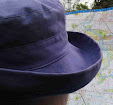
When War was declared in August 1914, Ern Latchford was working as an Instructional Officer at the 58B training depot in Ascot Vale. Instructional Officers had been selected to train boys involved in the compulsory Universal Training Scheme. The local area - Essendon, Moonee Ponds, Ascot Vale, Flemington - was designated Area 58. On reaching 18 the boys would transfer to the militia 58 Infantry (Essendon Rifles).
Instructional Officers were too valuable to be allowed to enlist with the AIF - they were needed for training at home, and Ern was dispatched to train Light Horse recruits at Broadmeadows. It was not until 1916 that he was permitted to enlist for overseas service, and embarked as a Lieutenant with the 38 Infantry Battalion.
Using Ern's own letters, as well as detailed research, Mark Latchford has recreated Ern's world, from his infancy, through work at Coles Book Arcade, his interest in military cadets, selection as an Instructional Officer, embarking with the 38th Battalion, being recuited by General John Monash to join a British force in Persia, taking on the training of the White Russian Army in Russia, his postwar Army career and involvement in the 2nd World War.
There is also the romance with the love of his life, Linda Dehnert of Lily Vale, Ballan, to whom he devotedly wrote every week until they finally married.
Ern's letters recreate his war experience for Linda in an articulate and immediate fashion. He told what it was like to be there - a most remarkable historical record of his time, which will reward the reader.
"Letters to Lily Vale”: The Life and Letters of Ernest William Latchford MC, MBE 1916 to 1919 France,
Persia and Russia, by Mark Latchford, Openbook Howden, 2020: ISBN 9780648845621.
Available from the History Victoria Bookshop.



















